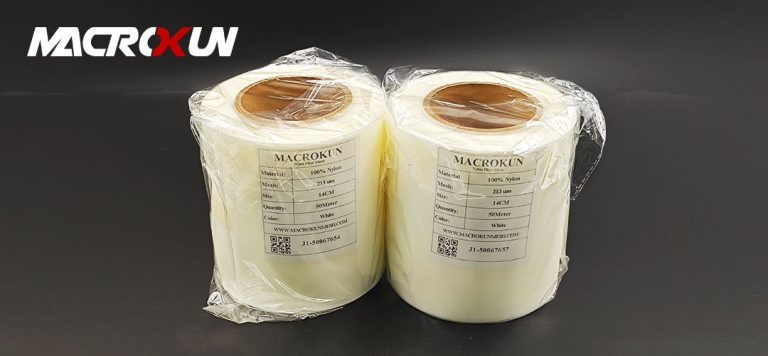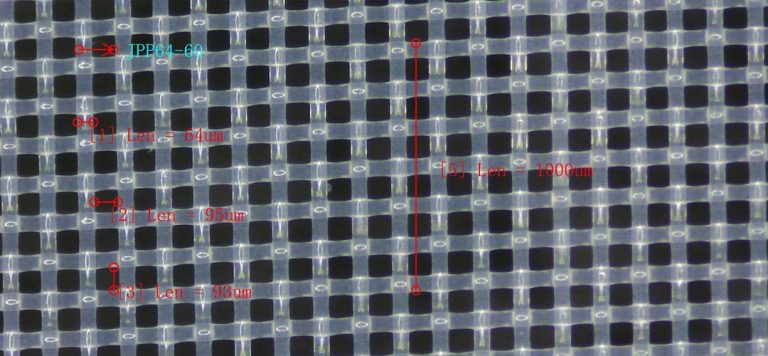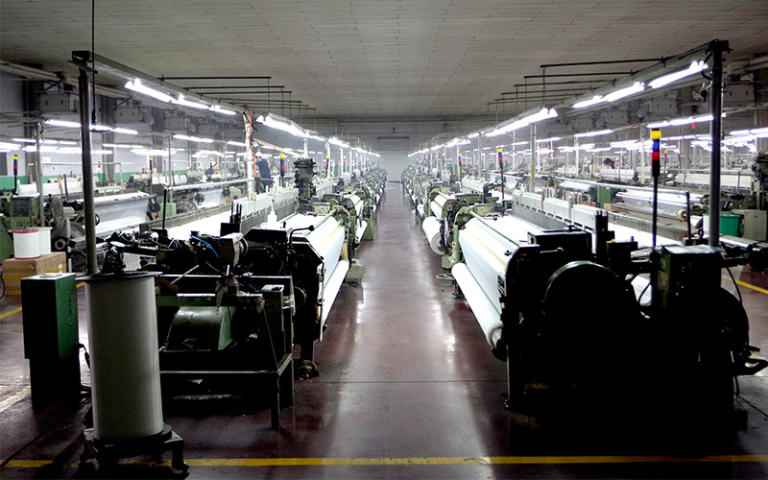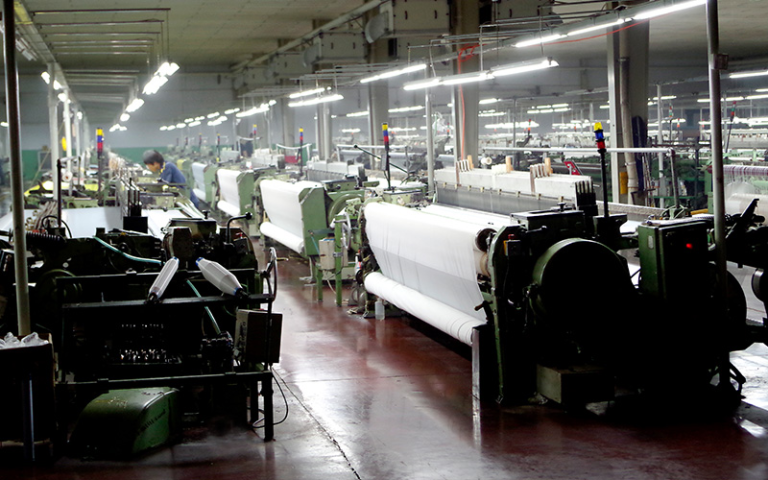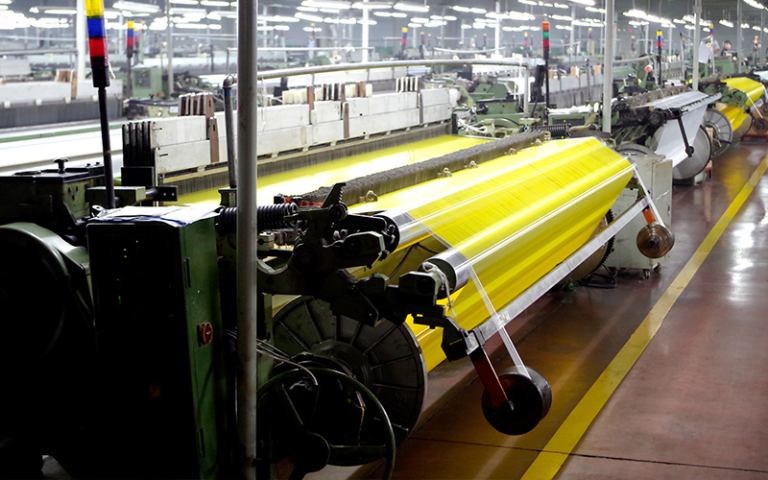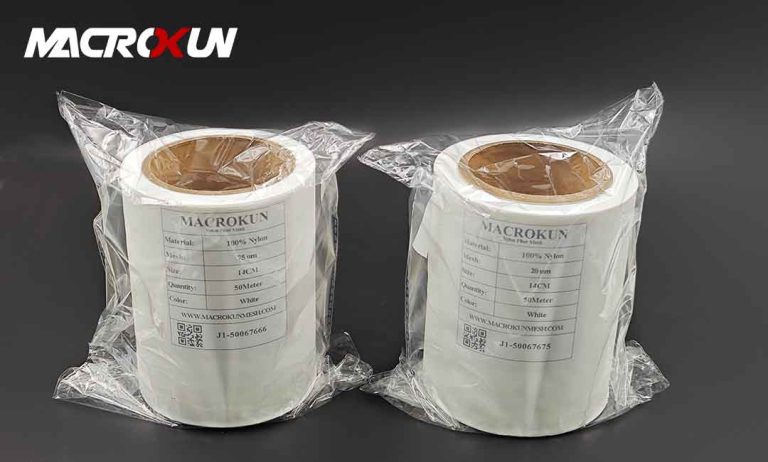Table of Contents
Benefits of Using micron nylon mesh netting for Industrial Filtration
micron nylon mesh netting is a versatile and effective solution for industrial filtration needs. This type of mesh netting is made from high-quality nylon material that is durable, flexible, and resistant to chemicals and abrasion. It is commonly used in a wide range of industries, including food and beverage, pharmaceutical, chemical, and automotive, among others. There are several benefits to using micron nylon mesh netting for industrial filtration, which we will explore in this article.
One of the key benefits of using micron nylon mesh netting for industrial filtration is its ability to provide precise filtration results. The mesh netting is available in a wide range of micron sizes, allowing for the filtration of particles of various sizes. This level of precision is crucial in industries where the removal of contaminants or impurities is essential for product quality and safety. Micron nylon mesh netting can effectively capture particles as small as 5 microns, ensuring that the filtration process is thorough and efficient.
Another advantage of micron nylon mesh netting is its high flow rate. The open weave design of the mesh netting allows for a high flow rate of liquids or gases through the material, without compromising on filtration efficiency. This is particularly important in industries where a fast and continuous filtration process is required to maintain production efficiency. Micron nylon mesh netting can handle high flow rates without clogging or slowing down the filtration process, making it an ideal choice for industrial applications.
In addition to its precise filtration capabilities and high flow rate, micron nylon mesh netting is also known for its durability and longevity. The nylon material is resistant to chemicals, abrasion, and temperature fluctuations, making it suitable for use in harsh industrial environments. This durability ensures that the mesh netting can withstand the rigors of industrial filtration processes without deteriorating or losing its effectiveness over time. This longevity translates to cost savings for businesses, as they can rely on micron nylon mesh netting for long-term filtration needs without frequent replacements or repairs.
| Model | Mesh Count (/cm) |
Mesh Count (/inch) |
Thread Dia (um) |
Mesh Opening (um) |
Thickness (um) |
Weight (g/m2) |
| NL4/1950 | 4 | 10 | 550 | 1950 | 1100 | 307 |
| NL5/1500 | 5 | 13 | 500 | 1500 | 1000 | 318 |
| NL6/1267 | 6 | 15 | 400 | 1267 | 800 | 244 |
| NL7/1079 | 7 | 18 | 350 | 1079 | 700 | 218 |
| NL8/900 | 8 | 20 | 350 | 900 | 700 | 249 |
| NL9/861 | 9 | 23 | 250 | 861 | 500 | 143 |
| NL9/811 | 9 | 23 | 300 | 811 | 600 | 206 |
| NL10/750 | 10 | 25 | 250 | 750 | 500 | 159 |
| NL10/700 | 10 | 25 | 300 | 700 | 600 | 229 |
| NL12/583 | 12 | 30 | 250 | 583 | 500 | 191 |
| NL12/533 | 12 | 30 | 300 | 533 | 600 | 274 |
| NL14/514 | 14 | 36 | 200 | 514 | 340 | 142 |
| NL16/425 | 16 | 40 | 200 | 425 | 340 | 160 |
| NL20/350 | 20 | 50 | 150 | 350 | 255 | 113 |
| NL20/300 | 20 | 50 | 200 | 300 | 340 | 200 |
| NL24/267 | 24 | 60 | 150 | 267 | 255 | 135 |
| NL28/237 | 28 | 70 | 120 | 237 | 204 | 101 |
| NL30/213 | 30 | 76 | 120 | 213 | 204 | 110 |
| NL32/213 | 32 | 80 | 100 | 213 | 170 | 80 |
| NL36/178 | 36 | 90 | 100 | 178 | 170 | 90 |
| NL40/150 | 40 | 100 | 100 | 150 | 170 | 100 |
| NL43/153 | 43 | 110 | 80 | 153 | 136 | 70 |
| NL48/128 | 48 | 120 | 80 | 128 | 136 | 77 |
| NL56/119 | 56 | 140 | 60 | 119 | 102 | 50 |
| NL64/96 | 64 | 160 | 60 | 96 | 102 | 58 |
| NL72/89 | 72 | 180 | 50 | 89 | 85 | 45 |
| NL80/75 | 80 | 200 | 50 | 75 | 85 | 50 |
| NL100/57 | 100 | 250 | 43 | 57 | 73 | 46 |
| NL110/48 | 110 | 280 | 43 | 48 | 73 | 52 |
| NL120/48 | 120 | 300 | 35 | 48 | 60 | 37 |
| NL120/40 | 120 | 300 | 43 | 40 | 73 | 55 |
| NL130/42 | 130 | 330 | 35 | 42 | 60 | 40 |
| NL130/34 | 130 | 330 | 43 | 34 | 73 | 61 |
| NL140/36 | 140 | 350 | 35 | 36 | 60 | 43 |
| NL157/25 | 157 | 400 | 43 | 25 | 73 | 74 |
| NL180/20 | 180 | 450 | 39 | 20 | 66 | 68 |
| NL200/15 | 200 | 500 | 39 | 15 | 66 | 76 |
| NL220/10 | 220 | 550 | 39 | 10 | 66 | 84 |
| NL240/5 | 240 | 600 | 39 | 5 | 66 | 91 |
Furthermore, micron nylon mesh netting is easy to clean and maintain, further enhancing its appeal for industrial filtration applications. The material can be easily washed or rinsed to remove trapped particles or contaminants, allowing for quick and efficient maintenance of the filtration system. This ease of maintenance helps to minimize downtime and ensure that the filtration process remains uninterrupted, contributing to overall operational efficiency.

In conclusion, micron nylon mesh netting offers a range of benefits for industrial filtration applications. From its precise filtration capabilities and high flow rate to its durability, longevity, and ease of maintenance, micron nylon mesh netting is a versatile and effective solution for a wide range of industries. Businesses can rely on this material to provide consistent and reliable filtration results, helping to improve product quality, safety, and operational efficiency. Whether used in food and beverage production, pharmaceutical manufacturing, chemical processing, or automotive applications, micron nylon mesh netting is a valuable asset for industrial filtration needs.
Applications of Micron Nylon Mesh Netting in Various Industries
Micron nylon mesh netting is a versatile material that finds applications in various industries for filtration purposes. Its fine mesh structure allows for precise filtration of particles, making it an ideal choice for industries where purity and precision are paramount. In this article, we will explore the different applications of micron nylon mesh netting in various industries.
One of the primary industries that benefit from the use of micron nylon mesh netting is the pharmaceutical industry. In pharmaceutical manufacturing, maintaining a high level of purity is crucial to ensure the safety and efficacy of the final product. Micron nylon mesh netting is used in filtration systems to remove impurities and contaminants from liquids and gases, ensuring that the end product meets the required quality standards.
Another industry that relies on micron nylon mesh netting for filtration is the food and beverage industry. In food processing, maintaining a clean and hygienic environment is essential to prevent contamination and ensure food safety. Micron nylon mesh netting is used in filtration systems to remove solid particles and impurities from liquids such as juices, sauces, and dairy products, ensuring that the final product is free from contaminants.
The automotive industry also makes use of micron nylon mesh netting in various applications. In automotive manufacturing, filtration systems are used to remove contaminants from fluids such as oil, fuel, and coolant to prevent damage to engine components. Micron nylon mesh netting is used in these filtration systems to trap particles and debris, ensuring that the fluids circulating in the engine are clean and free from impurities.
In the chemical industry, micron nylon mesh netting is used in filtration systems to separate solids from liquids and gases. Chemical processing often involves the use of corrosive and hazardous substances, making it essential to have reliable filtration systems in place to ensure the safety of workers and the integrity of the final product. Micron nylon mesh netting is resistant to a wide range of chemicals, making it an ideal choice for filtration applications in the chemical industry.
The textile industry also benefits from the use of micron nylon mesh netting in various applications. In textile manufacturing, filtration systems are used to remove impurities and contaminants from dyes and chemicals used in the production process. Micron nylon mesh netting is used in these filtration systems to ensure that the dyes and chemicals are free from particles that could affect the quality of the final product.
In conclusion, micron nylon mesh netting is a versatile material that finds applications in various industries for filtration purposes. Its fine mesh structure allows for precise filtration of particles, making it an ideal choice for industries where purity and precision are essential. From pharmaceuticals to food and beverage, automotive, chemical, and textile industries, micron nylon mesh netting plays a crucial role in ensuring the quality and safety of products. Its resistance to chemicals and durability make it a reliable choice for filtration applications in a wide range of industries.
How to Choose the Right Micron Nylon Mesh Netting for Your Filtration Needs
Micron nylon mesh netting is a versatile and essential component in various industrial filtration processes. From separating solids from liquids to removing impurities from gases, micron nylon mesh netting plays a crucial role in ensuring the quality and efficiency of filtration systems. With a wide range of micron sizes available, choosing the right micron nylon mesh netting for your specific filtration needs is essential for achieving optimal results.
When selecting micron nylon mesh netting, it is important to consider the size of the particles you are trying to filter. The micron size refers to the size of the openings in the mesh netting, with smaller micron sizes indicating finer filtration capabilities. For example, if you are filtering out large particles, such as debris or sediment, a larger micron size would be more appropriate. On the other hand, if you need to remove smaller particles, such as bacteria or fine particulates, a smaller micron size would be necessary.
In addition to particle size, the material composition of the micron nylon mesh netting is also an important factor to consider. Nylon is a popular choice for filtration applications due to its durability, chemical resistance, and flexibility. It is capable of withstanding high temperatures and harsh chemicals, making it suitable for a wide range of industrial filtration processes. When choosing micron nylon mesh netting, be sure to select a material that is compatible with the substances being filtered to ensure optimal performance and longevity.
Another consideration when selecting micron nylon mesh netting is the weave pattern. The weave pattern refers to the arrangement of the threads in the mesh netting, which can affect the flow rate and efficiency of the filtration process. Common weave patterns include plain weave, twill weave, and Dutch weave, each offering unique benefits for specific filtration applications. For example, a plain weave pattern is ideal for general filtration purposes, while a Dutch weave pattern is better suited for fine particle filtration.
When determining the appropriate micron size, material composition, and weave pattern for your filtration needs, it is important to consult with a filtration expert or supplier. They can provide valuable insights and recommendations based on your specific requirements and operating conditions. Additionally, they can assist in selecting the right micron nylon mesh netting that meets industry standards and regulations, ensuring compliance and quality control.
In conclusion, micron nylon mesh netting is a versatile and indispensable tool for industrial filtration processes. By choosing the right micron size, material composition, and weave pattern, you can achieve optimal filtration results and improve the efficiency of your operations. Consult with a filtration expert to determine the best micron nylon mesh netting for your specific needs and ensure the success of your filtration system.
Maintenance Tips for Ensuring Longevity of Micron Nylon Mesh Netting
Micron nylon mesh netting is a versatile and essential component in many industrial filtration systems. Its fine mesh structure allows for the efficient separation of particles and contaminants from liquids and gases, making it an indispensable tool in a wide range of industries, including pharmaceuticals, food and beverage, and chemical processing. However, like any filtration material, micron nylon mesh netting requires proper maintenance to ensure its longevity and effectiveness.
One of the most important maintenance tips for micron nylon mesh netting is regular cleaning. Over time, particles and contaminants can build up on the surface of the mesh, reducing its filtration efficiency and potentially causing damage. To prevent this, it is essential to clean the mesh regularly using a gentle cleaning solution and a soft brush or cloth. Avoid using harsh chemicals or abrasive materials, as these can damage the delicate mesh structure.
In addition to regular cleaning, it is also important to inspect the mesh netting regularly for signs of wear and tear. Check for any tears, holes, or fraying along the edges of the mesh, as these can compromise its filtration capabilities. If any damage is found, it is important to repair or replace the mesh netting as soon as possible to prevent further issues.
Another important maintenance tip for micron nylon mesh netting is proper storage. When not in use, store the mesh netting in a clean, dry, and well-ventilated area to prevent mold and mildew growth. Avoid storing the mesh netting in direct sunlight or extreme temperatures, as this can cause the material to degrade over time.
It is also important to handle the mesh netting with care to prevent damage. When installing or removing the mesh netting from a filtration system, be gentle and avoid pulling or stretching the material. Use caution when handling sharp objects near the mesh netting, as these can easily cause tears or punctures.
Regular maintenance and proper care are essential for ensuring the longevity and effectiveness of micron nylon mesh netting in industrial filtration systems. By following these maintenance tips, you can help extend the life of your mesh netting and ensure that it continues to provide reliable filtration for years to come.

In conclusion, micron nylon mesh netting is a versatile and essential component in industrial filtration systems. Proper maintenance is crucial for ensuring the longevity and effectiveness of the mesh netting. By regularly cleaning, inspecting, and storing the mesh netting properly, you can help prevent damage and extend its lifespan. Handle the mesh netting with care to avoid tears or punctures, and be proactive in repairing or replacing any damaged areas. With proper maintenance, your micron nylon mesh netting will continue to provide reliable filtration for your industrial applications.
Case Studies Highlighting Successful Implementation of Micron Nylon Mesh Netting in Industrial Filtration Systems
Micron nylon mesh netting has become a popular choice for industrial filtration systems due to its versatility and effectiveness in capturing particles of various sizes. In this article, we will explore some case studies that highlight the successful implementation of micron nylon mesh netting in industrial filtration applications.
One of the key advantages of micron nylon mesh netting is its ability to filter out particles of different sizes with precision. This makes it an ideal choice for industries that require high levels of filtration, such as pharmaceuticals, food and beverage, and chemical processing. In a case study involving a pharmaceutical company, micron nylon mesh netting was used to filter out contaminants from a liquid solution, resulting in a significant improvement in product quality and purity.
Another case study involved a food and beverage company that was experiencing issues with product contamination during the manufacturing process. By implementing micron nylon mesh netting in their filtration system, the company was able to effectively remove unwanted particles from their products, ensuring that only the highest quality goods were being produced. This led to increased customer satisfaction and improved brand reputation.
In the chemical processing industry, micron nylon mesh netting has been used to filter out impurities from various chemical solutions. A case study involving a chemical plant showed that by incorporating micron nylon mesh netting into their filtration system, the plant was able to achieve higher levels of purity in their final products, leading to increased efficiency and cost savings.

One of the key features of micron nylon mesh netting is its durability and longevity. Unlike other types of filtration media, micron nylon mesh netting is resistant to chemicals, abrasion, and high temperatures, making it an ideal choice for industrial applications where harsh conditions are present. In a case study involving a manufacturing plant that produced automotive parts, micron nylon mesh netting was used to filter out contaminants from a cooling solution, resulting in improved product quality and reduced maintenance costs.
Overall, the case studies presented in this article demonstrate the effectiveness of micron nylon mesh netting in industrial filtration systems. Whether it is in the pharmaceutical, food and beverage, or chemical processing industry, micron nylon mesh netting has proven to be a versatile and reliable solution for capturing particles of various sizes. Its durability, precision, and efficiency make it a valuable asset for companies looking to improve their filtration processes and achieve higher levels of product quality.
In conclusion, micron nylon mesh netting offers versatile solutions for industrial filtration systems, as demonstrated by the successful case studies highlighted in this article. Its ability to filter out particles of different sizes with precision, its durability and longevity, and its effectiveness in capturing contaminants make it an ideal choice for industries that require high levels of filtration. By incorporating micron nylon mesh netting into their filtration systems, companies can achieve improved product quality, increased efficiency, and cost savings.

